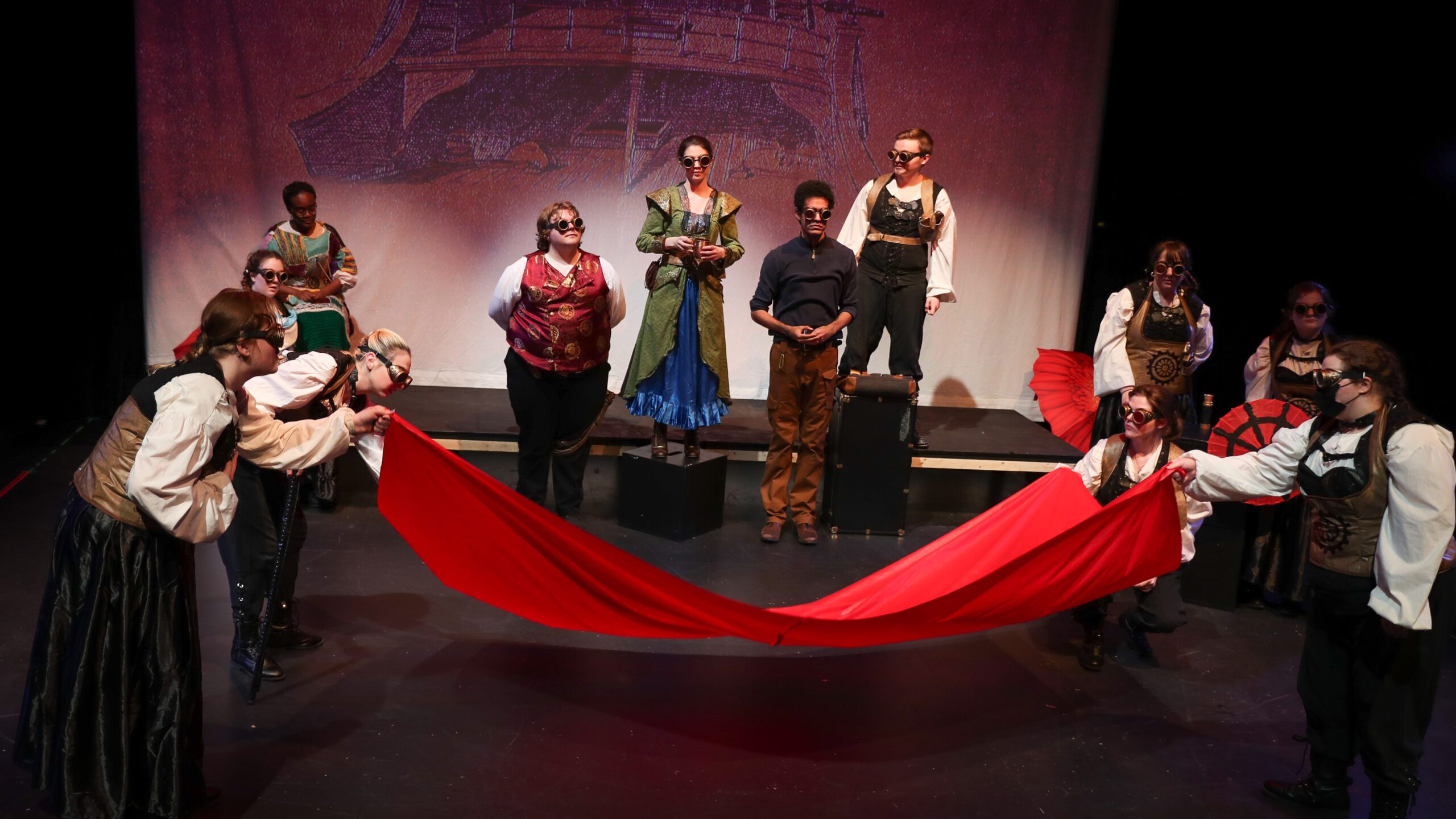When asked about the challenges in an interview setting, senior Tsering responded “Feeling the pressure to impress interviewers.” To the same question, freshman Hiyori expressed the unwillingness of the interviewer to be on the same page to be a nerve-racking aspect. Advising students to prepare through repeated practice only goes so far to alleviate stress. With so many resources available at Earlham, we wanted to find alternative ways to prepare for the dreaded interview. Career coach Eboni Dixon sat down with Lynne Perkins-Socey, Associate Professor of Theater Arts, to discuss interview preparation tactics from a theatrical point of view.
Treat competition as an advantage
Competition does not need to intimidate you but can rather empower you to find your unique skill. If there will be a number of applicants with the same technical qualifications how do you stand out? In order to stand out, approach interviews as a storytelling opportunity rather than an interrogative meeting. Lynne’s guiding questions can help you in the process of crafting your story through contextualization:
- What interests have led you to where you are right now?
- As you move forward, what are you trying to pursue?
- What do you have to offer? (both in a technical and interpersonal sense)
- What excites you about your future pursuits?
Be prepared enough to improvise
In order to strike the balance of sounding organic and prepared, it is vital that you allow your written monologue time to breathe. Allow your brain at least 3-4 weeks to soak in the monologue. During this time make sure to practice your pitch in various ways. Lynne further recommends having a range of monologues under your belt to communicate excitement, enthusiasm, frustration, sadness etc. So that you can tap into any of these emotions as suitable in the interview. Having the ability to improvise in interviews will alleviate major stressors, help you manage curve balls and make you a better listener.

The cast of “Further Misadventures of Martin Hathaway” (Photo by Dan Oetting)
Resources Available to you
There isn’t any foolproof formula you can follow to communicate about yourself. Instead, delivering your pitch under various circumstances and with different listeners can help you refine your communication skills. As much as it is important to follow a structure during interviews it is just as important to understand how to respond in a way that speaks to your listener. Therefore, practice your pitch with a variety of people such as your professors, advisors, career coaches and friends. This way you will have various versions of your pitch practiced and ready to use when needed.
Below are some resources that are accessible to you:
- Coaching Appointments– Through Handshake you can make an appointment with your respective career coaches to request a mock interview session.
- 24-hour Theater– Contact perkily@earlham.edu (Lynne, Professor of theater arts) or the conveners for ETC qtbucher22@earlham.edu (Quinn) and sacohen21@earlham.edu (Sarah) for more details.
- Big Interview– If the thought of practicing for interviews with other individuals stresses you out then consider utilizing the resource of Big Interview (https://earlham.biginterview.com). Through Big Interview you can record a mock interview session and send it to your advisor or respective career coach for feedback.
- Chatting with Community Members– Reach out to professors, admin faculty, peers, on-campus job supervisors to receive feedback on your brief introductory pitch. This practice will help you assess information that merits in-depth explanation and other information that can be condensed to refine your pitch.
Interview Preparation Checklist:
- Write a relevant monologue that helps introduce you and your competency for the position.
- Rehearse giving your pitch with a variety of listeners to have a better grasp of communicating your narrative in various emotions.
- Practice understanding what different listeners respond to and make adjustments and improvise.
- Seek experiences that allow you the opportunity to present yourself in different ways such as theater classes, 24-hour theater, public speaking classes, performing at open-mic events, volunteering with student clubs on campus etc.
A major takeaway that I want to end with is the fact that the interviewer is also invested in seeing their interviewee succeed. As Lynn puts it “they are rooting for you to be the one to solve their problem.” Therefore, it is more helpful to perceive an interviewing panel to be trustingly expectant rather than a judge and jury panel waiting to punish if you fall short.

 Earlham College, an independent, residential college, aspires to provide the highest-quality undergraduate education in the liberal arts and sciences, shaped by the distinctive perspectives of the Religious Society of Friends (Quakers).
Earlham College, an independent, residential college, aspires to provide the highest-quality undergraduate education in the liberal arts and sciences, shaped by the distinctive perspectives of the Religious Society of Friends (Quakers).
